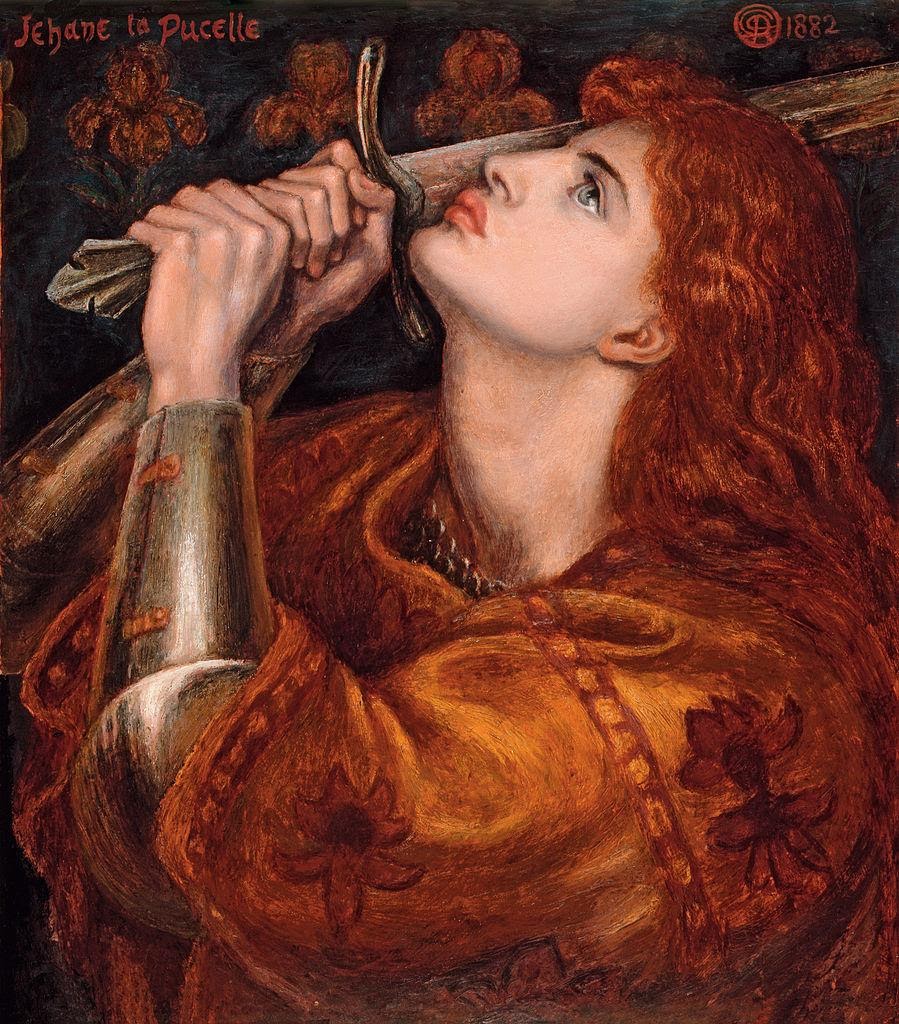
When the Stoic philosopher Epictetus urged us to choose a role model to follow to germinate our philosophical wisdom, few would consider Joan of Arc to be a relevant choice. Joan lacked education and was a very religious woman, but she had incredibly strong morals and a natural wisdom.
Joan of Arc was one of the most faithful women in human history and ultimately became canonized as a Catholic saint for her beliefs and accomplishments. Joan was born in Domremy, a small village in the northeast region of France. Even from a young age, she had always shown a good heart and would care for others around her. For example, she was known for giving away her belongings to people who she believed needed them more than her.
Her Concrete Beliefs
Joan was a teenage woman who could not read, but she never doubted her purpose in life. She had never seen a battlefield or touched a weapon, but she knew she was meant to lead the French army to victory against England.
She was virgin and remained so until her death at 19 years of age. She suffered many attempts of rape, but no one managed to violate her. To ward off these attacks, she decided to cut her hair short and began to dress as a man.
Joan served as a symbol and messenger from the heavens, but it was her good nature that raised the morals of the French soldiers. She led them into many victories, but never once swayed in her values. She never hurt or killed anyone, and refused to touch a weapon, but her impact on the war was far greater than any other soldier.
Her Mission
Before her many famous achievements, Joan loved to sit under the trees and listen to the sounds of nature. It was on one of those occasions that she had a vision. In this vision, she received instruction from the archangel Michael, Saint Margaret, and Saint Catherine of Alexandria to fight in the Hundred Years’ War for King Charles VII against the English domination.
Joan sought out the French army and requested to speak to the soon-to-be-crowned king, but she was turned away under the belief that she was crazy. However, she refused to give up and stayed until she was offered a meeting with the king. A commander told the king in advance of Joan’s visions and he decided to put her to the test.
Joan had never seen the king before, so he placed someone else on his throne and disguised himself as a common member of the court. It is said that Joan was unconvinced by the king’s trick and looked around the court, before bowing before the true king in his disguise. It was not enough for him to believe her, but she then told him something that has never been revealed, but which was enough for the king to believe her.
Victory and Defeat
Joan took the French army to Reims and achieved victory over the English army there, where the king was officially crowned. However, France was still taken by the English and Charles VII needed to march through Paris to affirm his kingship.
In the process of this march, Joan was captured by the Duke of Burgundy (the leader of an opposing French faction) and jailed for over a year. She faced trial for the crimes of cross-dressing as a man, heresy, and witchcraft. She was offered freedom or a painless death many times if she agreed to repent and agree that her visions were made up. She refused each time and was condemned to die by fire.
A Role Model in Death
Joan accomplished a lot in her short life, but perhaps the greatest of all was conquering the Stoic objective to not fear death. She did not fear death when she first saw the bloody aftermath of a battlefield at age 17. She was considered crazy, a witch, and a daughter of the devil, but she would not let those insults harm her and she prayed to God to forgive those who insulted her.
Joan did not fear death, even in her final moment. She did not scream or beg for anything as she was being consumed by the flames, except for the word Jesus. She chose to die for what she believed and even the promise of a slow and painful death was not enough for her to betray her faith. She lived each day trying her best to fulfil her purpose in life, and even in death her beliefs did not falter. That’s as Stoic as a person can be.
Many years after her death, her crimes were taken back by the Catholic Church and in 1920, she was named Saint Joan of Arc, a patroness of France.
If you would like to know more about Joan of Arc, I would strongly recommend The Mystery of Joan of Arc by Leon Denis, but there are countless other biographies and resources on her. Epictetus encouraged us to find a role model to develop our Stoic virtue and wisdom, but this person does not need to be a Stoic to offer this wisdom, and there is no better model than Joan of Arc.










